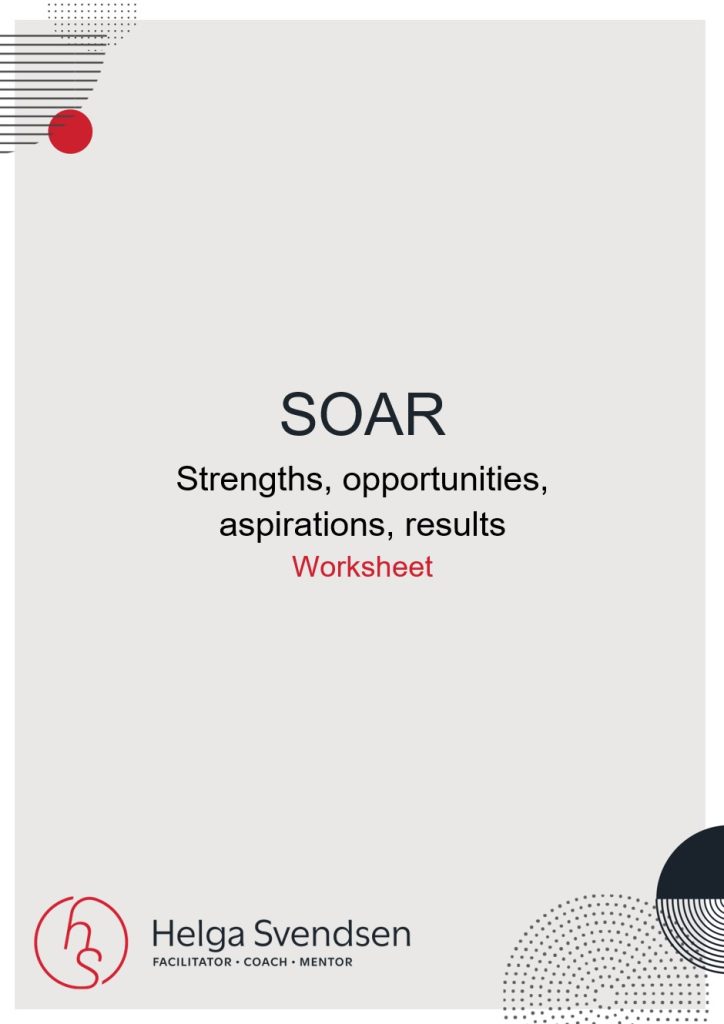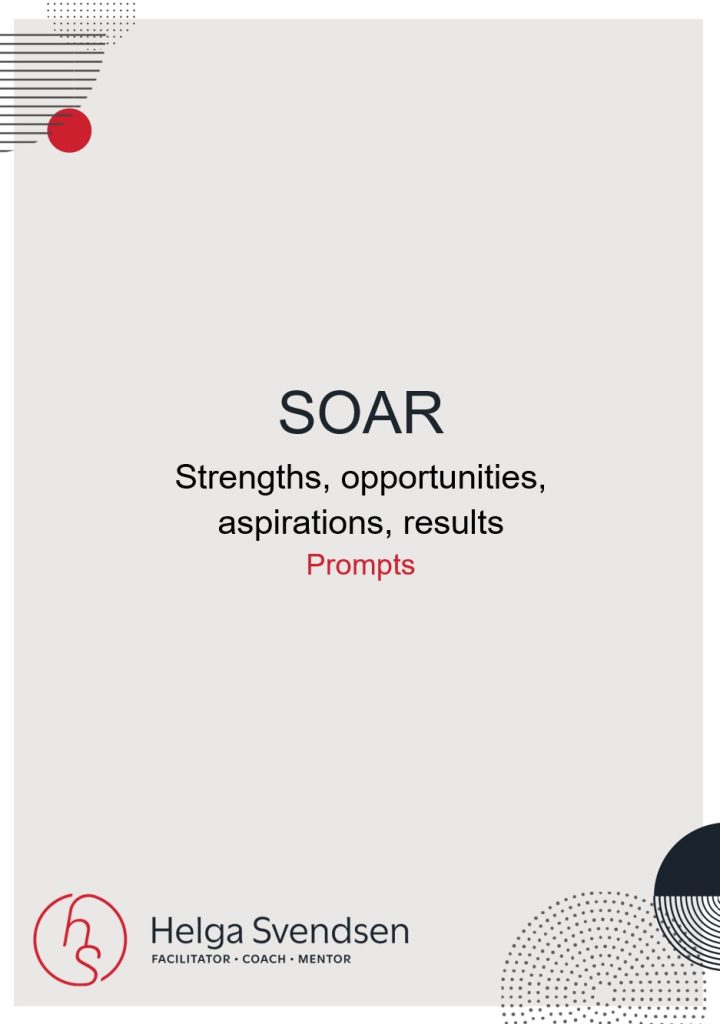For most workshops that I facilitate, I like to include a ‘context’ session at the start. I discuss this with the client during the planning phase. I generally suggest – and ask them to choose from – my two go-to context tools:
- SOAR: strengths, opportunities, aspirations, results
- PESTLE: political, economic, socio-cultural, technological, legal and environmental
While SOAR focuses on the organisation’s strengths, PESTLE gets people thinking and talking more broadly about the things that impact the organisation.
They’re both great for context-settling at the start of a workshop – warm-up activities looking at where the organisation or team is now and what has been achieved. And they’re often used to frame a strategy discussion.
SOAR – like a strengths-based version of a SWOT
“In a recent team planning workshop, Helga utilised the SOAR tool to engage the whole team in brainstorming strengths, opportunities, aspirations and results across the lifecycle of our program,” Rachel Reilly said after an Ethical Clothing Australia team planning workshop.
“The SOAR tool was a great fit for us as we are one program delivered by two organisations. As you can imagine, this comes with challenges, but ultimately, we do share the same vision and mission. The structure of the SOAR framework enabled us to engage in positive conversations – from our strengths as we exist now, right through to sharing where we want to get to as an organisation. It was a great framework to unify a team.”
SOAR was apparently ‘invented by Jacqueline Stavros, David Cooperrider and D Lynn Kelley in their paper SOAR: A new approach to strategic planning, published in 2003’. Their SOAR analysis used the kind of 2×2 grid you see used with a SWOT analysis.
For some of my workshops, I expand on the SOAR framework to include a number of prompt questions relating to each of the four areas. I also ask workshop participants to answer the prompts from both leadership team and organisation point-of-views.
I use SOAR with the aim to help the team work out:
- Strengths: What can we build on?
- Opportunities: What are our stakeholders asking for?
- Aspirations: What do we care deeply about?
- Results: How do we know we are succeeding?
Want to give SOAR a go? Sign up to one or both of my newsletters to access:
- SOAR worksheet
- SOAR prompts (questions for consideration)


PESTLE – gets people thinking more broadly
PESTLE is ideal for teams that want to look at the bigger picture – political, economic, socio-cultural, technological, legal and environmental.
Some organisations just want to do PEST, but I like the full banana – the whole PESTLE.
I ask the team a number or prompts to find out:
- Political: What political or politically motivated factors could affect the business?
- Economic: Overall, what economic forces could affect what you’re trying to do?
- Socio-cultural: What social attitudes, and trends influence your business and target market?
- Technological: What technology affects the way you make, distribute, and communicate your products and services?
- Legal: Are there any current and future legal and regulatory requirements that impact the business?
- Environmental: What environmental forces impact your businesses and/or customer’s geographical location, the surrounding environment and natural resources?
Want to give PESTLE a go? Sign up to one or both of my newsletters to access:
- PESTLE prompts (questions for consideration)
Any context tool tips?
Have you come across a great context tool? I’d love to hear about it!
